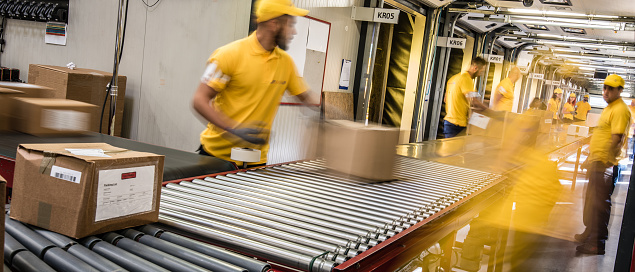Thanks to the likes of Amazon, Wal-Mart, and Alibaba online shoppers have come to expect that the products they want are available when then want them with no hassle. For online retailers, simply keeping pace with the ever-expanding universe of products can be extremely challenging. They have to be sure their products are relevant, work as advertised, and their pricing is competitive. This simply doesn’t leave time in the day for companies to make sure they respond “in-the-moment” to a customer purchase on a website, and ensure it gets into their hands with the absolute least amount of friction.
Today, eCommerce companies must find partners who can manage full end-to-end commerce; from order through delivery and – when necessary – complete seamless returns. The role of logistics and fulfillment partners are more important now than ever.
So how do eCommerce companies find the best fulfillment partner to get their products from click to doorstep? To begin, fulfillment companies must have modern technology integrated into every facet of their operations. From seamless interconnection in their web-store through online freight and shipping portals, a modern fulfillment company must be able to provide complete visibility along the entire journey. They should be able to see every facet of their business from inventory to orders to delivery and if necessary to returns.
Second, companies must have world-class operations – having demonstrated the ability to scale with an online retailer as they grow, while also being able to handle an
ever-increasing number of skus. High variety and low volume is no longer an exception in today’s eCommerce climate but it can be new for a fulfillment company.
Third, the best fulfillment companies have developed great strategic partnerships with shipping and logistics companies. Not just the monoliths like FedEx and UPS, but smaller regional companies who can often be a much better option in the right circumstances.
Finally, the very best fulfillment companies are data driven. They know how to help online retailers continually learn more about their customers, identify opportunities to shave costs, and to anticipate, versus react, immediately to the ripples in the value chain.
Fulfillment centers play a central role in meeting demanding customer expectations and the best companies have evolved to meet the changing needs of their eCommerce customers. They’ve learned that instead of replenishing stock at a store they are now fulfilling small orders – often for a single item – and increasing complexity is now the norm.
The best companies are able to not only survive the growing complexity of fulfillment, but actually thrive. This is not an easy task and it is something that eCommerce companies should not be willing to compromise. They should be asking their current and/or future fulfillment providers not only about their shipping rates and labor costs but also about their digital capabilities and how they leverage big data to provide the best services to help stay ahead of the market. The convergence of traditional fulfillment with big data and leading technology is no longer a nice to have – it’s a must have.

